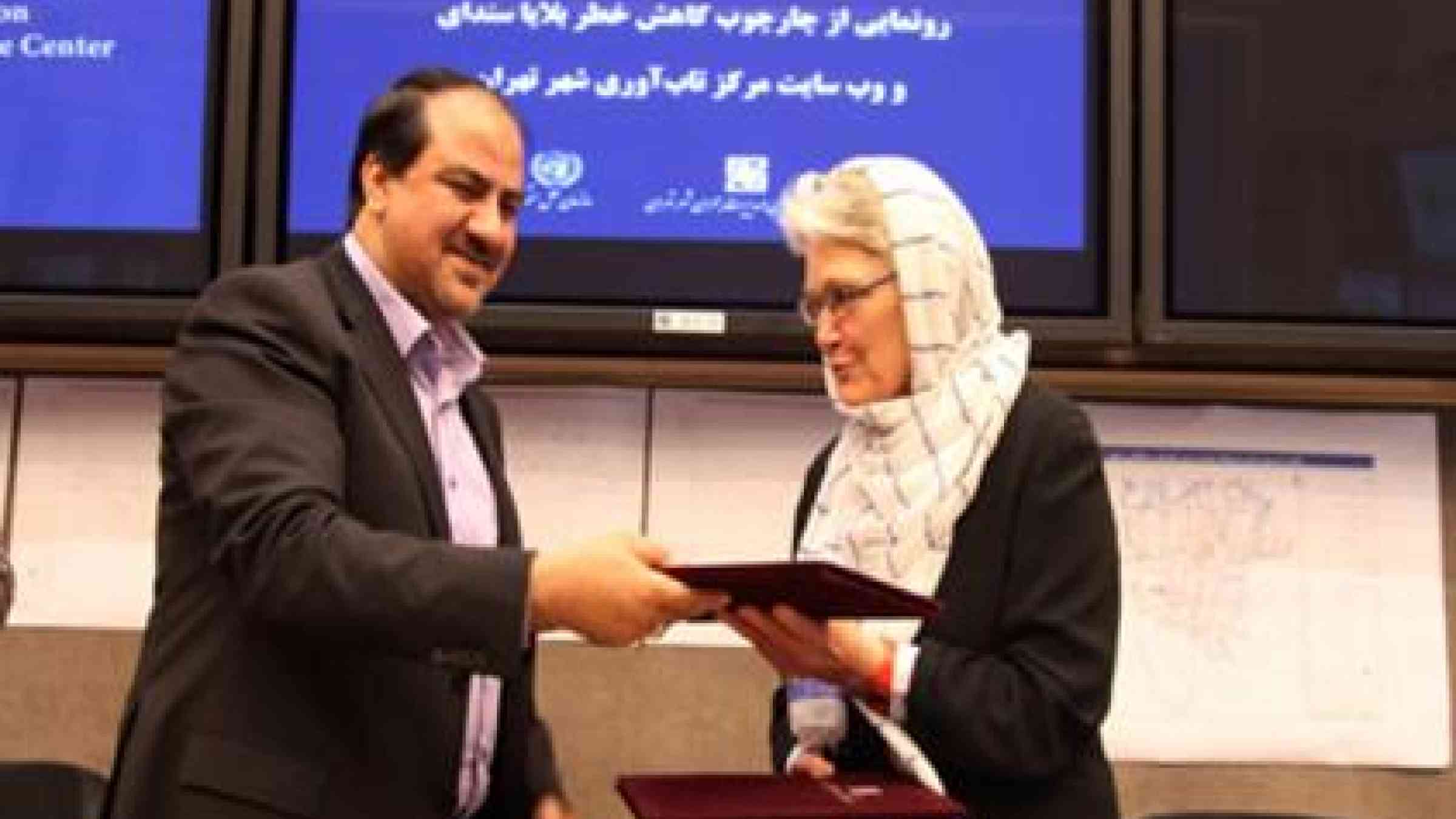Iran acts on Sendai Framework

TEHRAN, 5 October 2015 - Implementation of the Sendai Framework for Disaster Risk Reduction 2015-2030 received another boost this week with the announcement in Tehran that the text has now been translated into Farsi, a language used by some 100 million people in Iran and neighbouring countries.
The head of UNISDR, Margareta Wahlström, said: “The Sendai Framework has a lifetime of 15 years so it is vital that the text is available in as many languages as possible, as soon as possible. Iran’s example is one that I hope will be emulated by many other countries.”
In Tehran, Ms. Wahlström met with the Mr. Mohammad Najar, Deputy Minister for the Interior and head of the National Disaster Management Organization (NDMO), as well as Dr. Sadeghi, the head of the Tehran Disaster Mitigation and Management Organization (TDMMO).
In discussions, she was informed that 5% of the national budget, $3.5 billion, is allocated to disaster risk management and disaster response and that the 2008 national disaster management law is currently under revision before being presented to parliament.
This legislative revision will take account of the priorities for action of the Sendai Framework which was adopted in March, 2015, as a blueprint for achieving a substantial reduction in global disaster losses by placing emphasis on managing disaster risk which is already a key focus for Iran as evidenced by the $4.5 billion it has already spent on doubling the number of safe schools in the country through retrofitting and reconstruction.
Mr. Najjar expressed Iran’s serious concern about the hazard of sandstorms and the risk generated by the environmental situation especially in neighbouring countries. He said this has become a serious health and economic concern in the region and he requested the support of UNISDR in convening experts to evaluate the risk and propose solutions.
Ms. Wahlström said UNISDR would be prepared to support development of a comprehensive national disaster risk management plan in time to meet the 2020 deadline set out in the Sendai Framework and this could include an evaluation and management plan for the sandstorm risk.
Mr. Najjar also provided details of a national programme for reconstructing vulnerable buildings which is proceeding at the rate of 250,000 houses per year. Old building stock is a major issue for the majority of urban centres in Iran.
In further support to the Sendai Framework’s priority for investing in resilient infrastructure, Iran is working on irrigation systems to combat drought in the agriculture sector and has also set up an insurance scheme for farmers.
Ms. Wahlström witnessed the launch of the Tehran Resilience Centre website and signed a joint statement with the Tehran Disaster Risk Management Organization on further collaboration with UNISDR’s Making Cities Resilient Campaign.
She was briefed on Tehran’s ongoing efforts to implement a Safe Schools programme focussing on non-structural aspects such as training of school staff and students, the assessment of risk and the provision of emergency equipment. This is a complementary program to the national safe school initiative which is more focused on the structural safety. By the end of the school year in June 2016, it is intended that 1,000 city schools will be certified as safe.